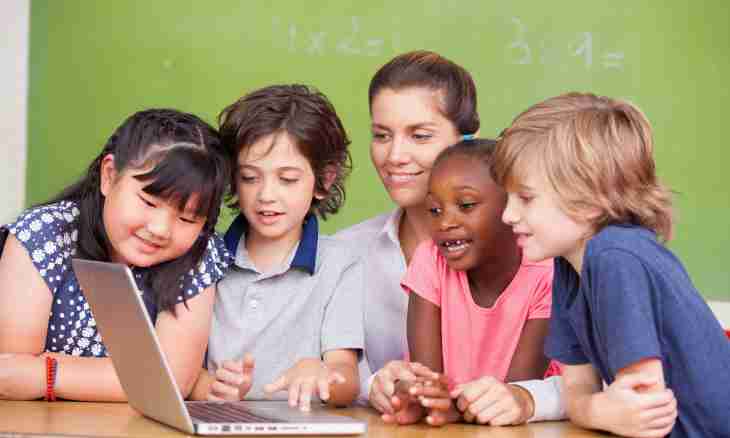Self-assessment – difficult personal education in which the fact that the child learns about himself from other people and own activity which is directed to awareness of personal qualities and actions is reflected. Knowledge of questions of a self-assessment of the younger school student in defines formation of the relations with the child many.
Development of a self-assessment depends on a school gain score. Taking the teacher's assessment for the main reference point, children refer themselves and other members of children's collective to category of excellent students and poor students. As a result each group finds a set of the corresponding qualities. Progress level in initial classes – assessment of the personality and the social status of the child. During this period it is important to teachers and parents to understand and differentiate the concepts "activity assessment" and "assessment of the personality". Situations when the gain score is transferred to personal qualities of the child are inadmissible. The negative review about work of the kid can imprint in his consciousness a phrase "you are a bad person".
The first grader's self-assessment almost completely depends on estimated judgments of adults. The transition period as a result of which the quantity of negative self-assessments sharply increases is the share of 3–4 class. The discontent with extends to communication with schoolmates and educational activity.
Types of a self-assessment of younger school students
A number of the conducted researches showed that all types of a self-assessment are inherent in younger school students: overestimated steady, adequate steady, unstable, directed towards inadequate overestimate or understating. With age at children the ability correctly itself is formed to estimate and the tendency to revaluation decreases. The most rare at this age is the steady underestimated self-assessment. The type of a self-assessment of the child can be defined not only on the basis of estimated judgments of itself, but also in relation to achievements of other children. The raised self-assessment is not always expressed in extolling of, it is possible to notice critical judgments of activity and work of peers more often. The pupils having the lowered self-assessment overestimate achievements of schoolmates.
Type of a self-assessment and feature of behavior
Special tests are not required to define self-assessment type. Children with adequate type are vigorous, active, sociable and have good sense of humour. Search of mistakes in own work attracts of them enthusiasm and interest. Choosing tasks, they are guided by the opportunities, having failed, next time will give preference to less complex work. The high adequate self-assessment makes children active, seeking for achievement of success irrespective of a type of activity. The underestimated inadequate type is easily recognized from younger school students: on the offer to check the work they will refuse to do it or will execute, without making any corrections. Encouragement and encouragement is capable to return them to activity and to revive enthusiasm. Focus on possible failure makes such children closed and unsociable.
